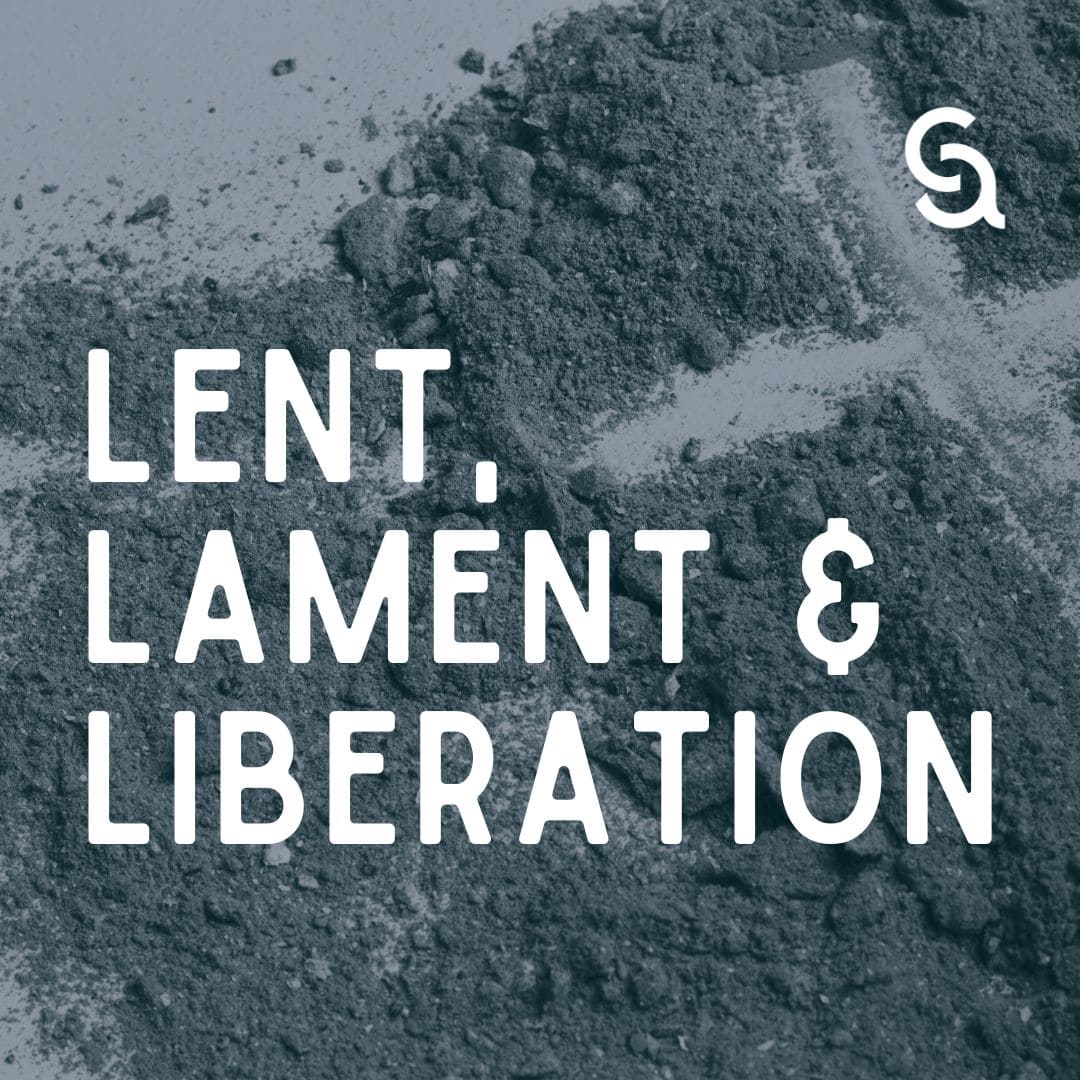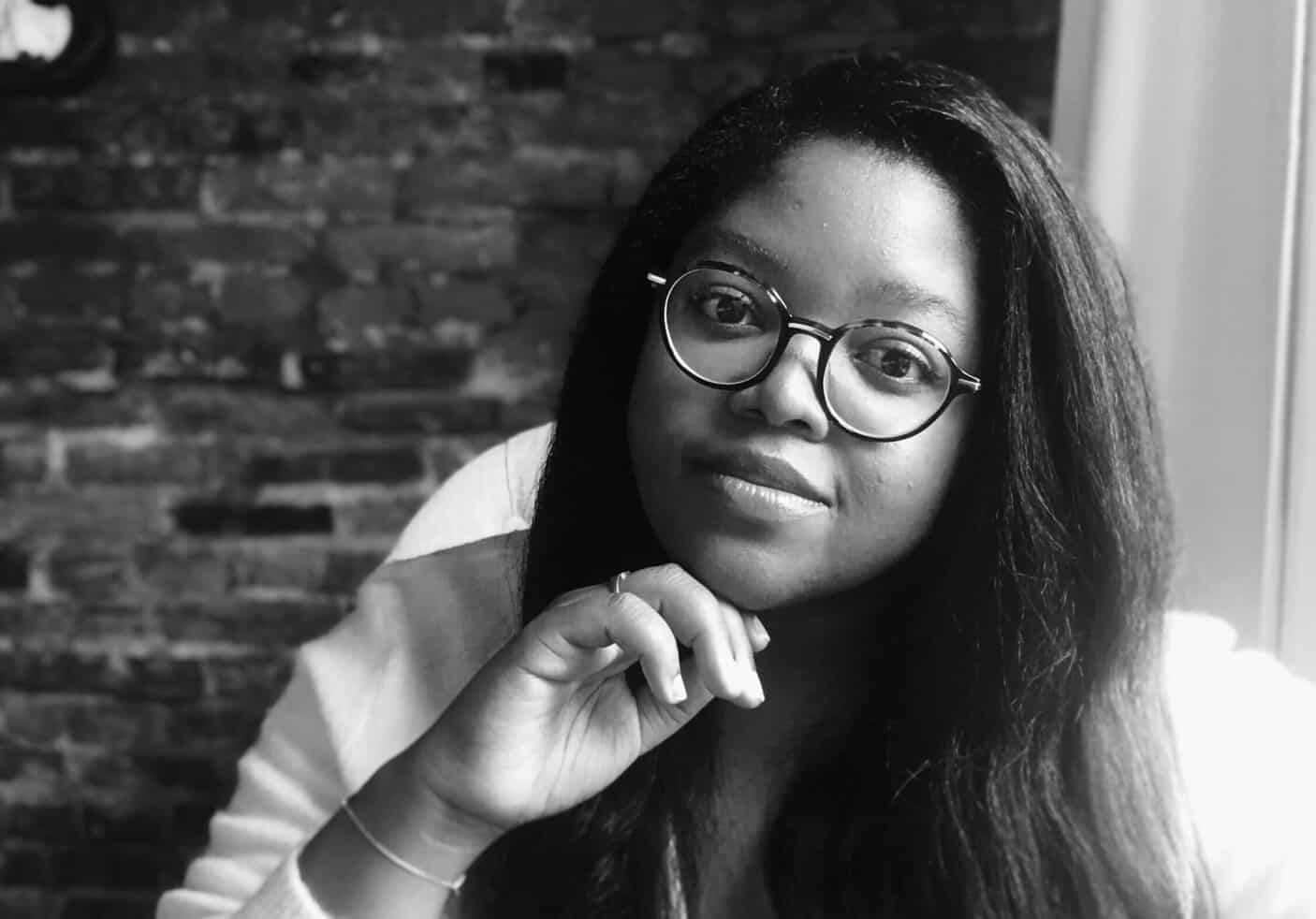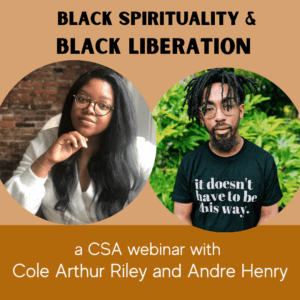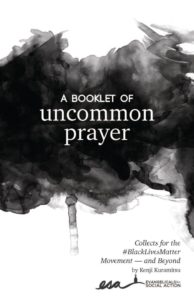 During Lent, we take time to slow down and notice the ways in which our personal and collective sin has birthed death within us. We notice it and reject it, giving up simple conveniences and pleasures to focus on our need for God’s redemption in our lives. This Lent we are asking, “How might our lamenting lead us to the liberative future of shalom God promises us? What wisdom do those on the margins have that can help us envision the hope for liberation, even while we lament the current state of things?”
During Lent, we take time to slow down and notice the ways in which our personal and collective sin has birthed death within us. We notice it and reject it, giving up simple conveniences and pleasures to focus on our need for God’s redemption in our lives. This Lent we are asking, “How might our lamenting lead us to the liberative future of shalom God promises us? What wisdom do those on the margins have that can help us envision the hope for liberation, even while we lament the current state of things?”
Today’s post features a transcript from New York Times bestselling author Cole Arthur Riley during a 2022 CSA Racial Justice Institute webinar called Black Spirituality & Black Liberation. Cole Arthur Riley, author of This Here Flesh, and Andre Henry, bestselling author of All the White Friends I Couldn’t Keep, discuss how their books and work engage that crucial intersection of racial justice. As we just closed Black History month, we encourage you to give their important conversation a listen here. Here’s a teaser that offers us wisdom for the intersection of Black History Month and this season of Lenten lament.
***
Reflections on the Consequences of Lament
“Lament is a practice to me, the word is new. I think of it as just a practical sadness and having some intention behind it, as opposed to being something that happens to you. I think of it as being a little bit distinct from grief, but it might include grief in that it’s something you’re choosing to participate in…Our country has known so much destruction and has not kept memory of it well and with that, I think, has not paused to grieve well because, like Andre was saying, “Look over here, don’t look over there!” It’s a constant act of diversion. Existing in white American spaces is a constant practice in overcoming diversion, the techniques of diversion. So it takes real commitment, real awareness to commit yourself to pause and to know that the thing you are grieving is worth sadness.
That might scare some people. We are a very depressed country as well…and so people are kind of afraid of sadness. Especially in Christian spaces, there’s this kind of pep talk that many of us on this call I’m sure have received…: “Don’t be sad, hope in God! Just hope in God, God is on the throne!” which I’m sure was initially a well-meaning pep talk, but actually it’s become a weapon against people who are really beautifully connected to the pain of the world, and connected to their own pain, and refuse to be rushed out of grief.
I think about the Buffalo shooting. That just happened. And how quickly I’m inclined to just rush through, especially with social media…it just kind of tears and pushes you around to the latest tragedy. I experience that as a real barrier to entering lament sometimes, because I feel like I’m being pulled out of sadness and into whatever feels relevant. I think it’s vital to survival. I don’t think we can be reduced to our grief, but if we want to survive, if we want to take with us anything from the Ancestors, we have to keep their unapologetic commitment to pausing and grieving what deserves grief…
There’s an article I’ve been returning to in Time magazine about Black Women instigating the origins of Memorial Day and creating this ritual of 10,000 people gathering, and they lined up the graves in rows, and they instigated this ritual which we now know as Memorial Day. There’s lots of evidence about this, by the way—people always push back but, hey—it’s history. Don’t come at me. It is what it is. I think about that and that beautiful ritual of lament. I don’t want to sentimentalize it—it’s a tragedy. People died that didn’t need to die in war. But look what Black ritualized grief can do, Black memory can do. I think that’s a beautiful honoring that came to life, this habit of honoring.”
***
Listen in to the full webinar Black Spirituality & Black Liberation with Andre Henry and Cole Arthur Riley here.
***

Cole Arthur Riley is a writer and poet. She is the NYT bestselling author of This Here Flesh and Black Liturgies. Her writing has been featured in The Atlantic, Guernica, The Boston Globe, and The Washington Post.
Cole is also the creator of Black Liturgies, a space that integrates spiritual practice with Black emotion, Black literature, and the Black body; and a project of The Center for Dignity and Contemplation where she serves as Curator.


